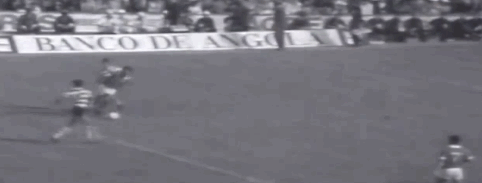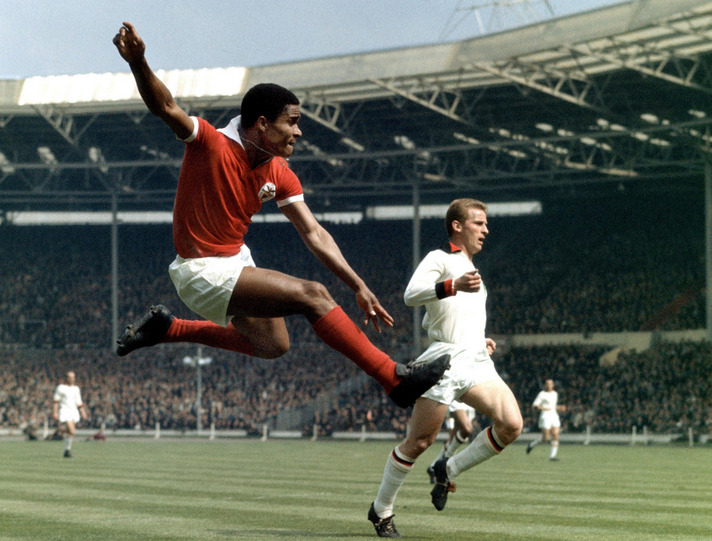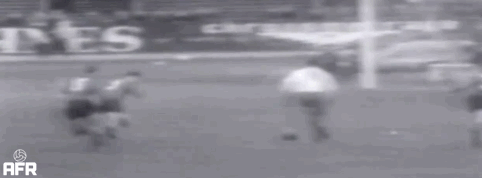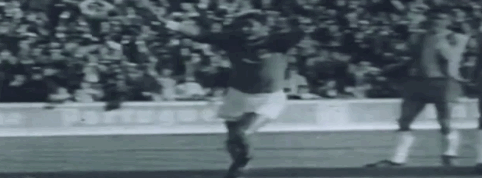The legend I never saw - A Tribute to Eusebio, ‘O Rei’
The legend I never saw - A Tribute to Eusebio, ‘O Rei’
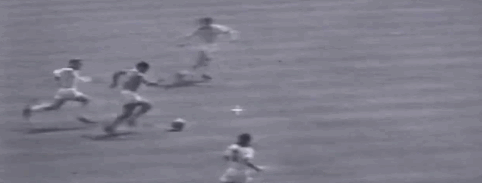
The legend I never saw - A Tribute to Eusebio, ‘O Rei’
By Dominic Vieira, writing from Lisbon
The amount of times I’ve walked to the Estadio da Luz from my grandmother's apartment to watch a Benfica match is countless. The trip with my father and brother is always the same: a repetitive route with Benfica scarves wrapped around our neck all, where all we’d talk about was our club. At that time the heroes were Nuno Gomes, Karel Poborksy and Joao Pinto. It had been years since we’d won the league, and European glory was only sensed in black and white photos published in dusty books. I had no idea how great Benfica was. None at all.
For many we’ve followed this walk; even when the old stadium (which really was quite something) was demolished, the path remained the same, with only the shirts we’d wear would changing. My father, who’s equally as passionate about the club as I am - if not more - would talk about the great days. He’d wax about the times when Benfica was a true domestic and international force, when over 100,000 attended the stadium, and would go on to list all of the glorious players who had the honour of wearing the shirt. And there were many.
Like all the thousands of fans making their way to the ground, we’d all pass the iconic statue of Eusebio, proudly planted in front of the main entrance since 1992 - the year of my birth. It’s unbelievable to think that by the age of 50, Eusebio had a statue made in his honour. And every time we passed the statue, displaying his classic strike, my father, who also grew up in Mozambique just like Eusebio, would tell me stories about that legend which I could never really believe.
There were two who I never forgot. I’d always be told that, “he had the most powerful shot I’d ever seen and Eusebio could score from just about anywhere.” Simply browse through the dozens of YouTube videos, and it becomes evident that his ability was far superior to anyone else’s on the pitch. He strikes the ball with pin-point power and accuracy, even with the balls in those days being very different.
And the second story, one which any Portuguese man could recount: that match against North Korea for the '66 World Cup. Yes, that quarter-final played at Goodison Park. It will always be an unforgettable moment of football history. “By the 25th minute we [Portugal] were down by three goals.” And then my father’s eyes would light up, just like Eusebio’s teammates who still retell this moment today in their interview. He continue, “And we responded. Well, Eusebio did. With 4 four goals!” Portugal went on to win the match 5-3, with club teammate Jose Augusto finishing the incredible comeback.
On this day, Eusebio’s place in both Portuguese and world history became engraved in gold.
On the field he was the superstar; the 'Black Panther’ was always hungry to score. On three occasions, 'O Rei’, which translates to 'The King’, scored 6 goals in a match. How many players have achieved that in their career? Like any footballer of this grand distinction, the number of records set and trophies lifted are incredible. It’s worth taking a look at a select few:
- 733 career goals from 745 matches
- 11 league titles with Benfica
- 1 European Cup and runner-up 3 more times with Benfica
- A record 7 times Portuguese league top scorer with Benfica
- Top scorer at the '66 World Cup with 9 goals with Portugal
- Ballon d'Or winner in 1965 and twice runner-up
- European Golden Boot winner in 1968 and 1973
The numbers really do speak volumes. Eusebio was a legend and is rightfully acknowledged as one of the best of all time. In the present day, he’s still seen as Portugal’s greatest, a throne which Ronaldo may never surpass. Nevertheless, as a passionate 'Benfiquista’, or as we like to say here 'um maluco pelo Benfica’, I never had the privilege to see Eusebio play, score those wonder goals and endlessly dominate newspaper headlines.
But even though I didn’t get to experience what my father did with his own eyes, I always knew he was our greatest. And I didn’t need to see him play to know that. To be honest, I wasn’t even aware how great Benfica was either; in those days opening an illustrious museum to display the glory was just talk amongst the fans - a mirage, we hadn’t won a league title in years and the internet was not the powerful tool it is today.
That realization first occurred in 2005, the year Benfica finally won the league title after a long wait; their 30th and the second conquered in my lifetime (I was two years old when they were champions in 1994). It was the last round of fixtures of the season and a draw was sufficient to win the league. Benfica’s final game was away at Boavista, who are based in Porto. Along with two others, we three Benfiquistas drove up to the north that day, to a city where red is not a colour warmly welcomed. Before entering the stadium we were told that there could be violence afterwards and it was suggested to hide our scarves. We were ready.
A 1-1 draw was sufficient that sunny afternoon at the Estadio do Bessa and we were champions under Giovanni Trappatoni. The next few hours were unbelievable, where I saw the team drive through the city of their rivals in an open bus celebrating their triumph. That day, from north to south, Portugal had been painted red once again. If you simply flicked on a TV that night, news reporters were spread throughout a nation capturing all the different cities celebrating a euphoric moment thousands of fans had waited so long for.
We were finally number one and as my dad told me, I finally got to see the true greatness of this club. I still can’t quite describe that day; Lisbon was shut down.
But before I had the opportunity to see my club crowned champions, the previous season not just opened up my eyes as to how big the impact of the Euro-2004 was,, but the whole country’s. In my persective, Portugal’s affection, passion and perception for football changed that summer. It wasn’t only a Brazilian manager and 23 footballers who led the country to their first European final, but also Eusebio, who was ever present throughout the journey.
When Portugal knocked England out of the quarter-finals in what is remembered as a truly exhilarating battle, Eusebio and goalkeeper Ricardo, who scored the winning penalty, celebrated the win with a lengthy hug after Eusebio spoke to him before the shoot-out. Then, after Greece lifted the trophy, the former striker consoled a sobbing Ronaldo. Portugal has not always been present on the highest of international stages, but Eusebio was always there and the 2014 World Cup will be the first without the presence of his inspiration.
It was in 2007 that I first got to meet Eusebio, in what became one of several encounters. It’s well known that he lived in Benfica (a neighbourhood in Lisbon), residing in a modest apartment located near a small shopping centre called 'Fonte Nova’. Unlike the stars of the modern day, footballers of Eusebio’s generation did not earn the millions they do now. Perhaps you’d have thought he owned a massive complex outside of the city, but Eusebio never did that, and probably didn’t have the fortune to do so. Once he retired from the beautiful game, Benfica took care of him, both financially and with the respect he deserved, making him the club ambassador after a working as a coach for several seasons.
When I met him in 'Fonte Nova’, where he was with other players of Benfica’s past, who’ve always been by his side, my leg began to shake from his presence. I’ve been fortunate to have been in the position to meet a large amount of footballers, from Kaka to Nedved to Xavi, and the only other time I got this sensation was during an encounter with Zinedine Zidane. There are few players who have that sort of aura revolving around them, and when the hairs on the back of your neck stand up, you know you’re in the presence of someone who’s truly great.
Now lets go back to the present day. On Sunday the fifth of January, 2013, the world woke up to the news that one of football’s greats, Eusebio, had passed away. I, like thousands of Benfica fans, made the trip to the stadium to pay tribute. And once again, there I stood by his statue, his eyes focused on the ball and getting ready to strike it as he so naturally did.
And this place became the centre of attention, it wasn’t long before TV cameras were set up, interviewing fans from all over the country of all ages, as well as other Benfica legends. Hours later, the statue had been covered with scarves, from a multitude of clubs, including Sporting and FC Porto, from head to toe. And a member of the 'No Name Boys’, the Benfica ultras, placed a crown on his head.
The following day, thousands of fans returned to the stadium. Over 10,000, including current and former players, witnessed Eusebio’s lap of honour around the stadium; a wish he had requested that was granted by the Benfica president. The celebrations continued with the hearse driving around the centre of Lisbon, always accompanied by hundreds of thousands of fans. Even when it reached the cemetery, in the pouring rain, there was a huge presence, and not once during the entire procession did the singing stop. After two intense days of endless support from the whole country and the world of football, Eusebio will finally be left in peace.
This has never been seen before in Portugal, and it’s likely it never will again.
To be remembered as an all-time great, a footballer needs to be out of this world, someone who consistently enjoyed success and consistently produced displays that will never be forgotten. But to be a great for both your country and football on a global level, a national treasure, a footballer can’t just be a superstar within the parameters of a football field. He must be one off the field, and Eusebio’s humble, honest and true personality, transformed him into an icon for everyone.
Rest in Peace King.
This piece was written by AFR’s Managing Editor Dominic Vieira after a trip Estadio da Luz to honour O Rei. Comments below please.

